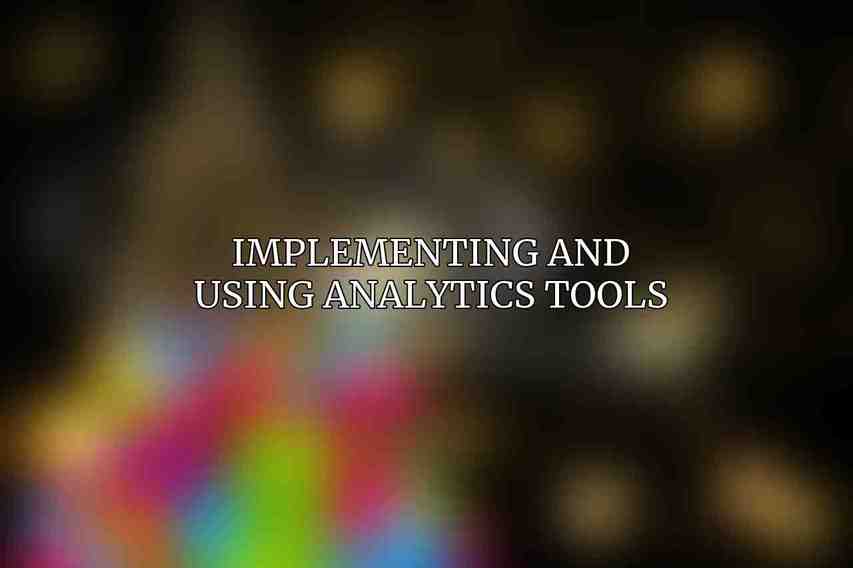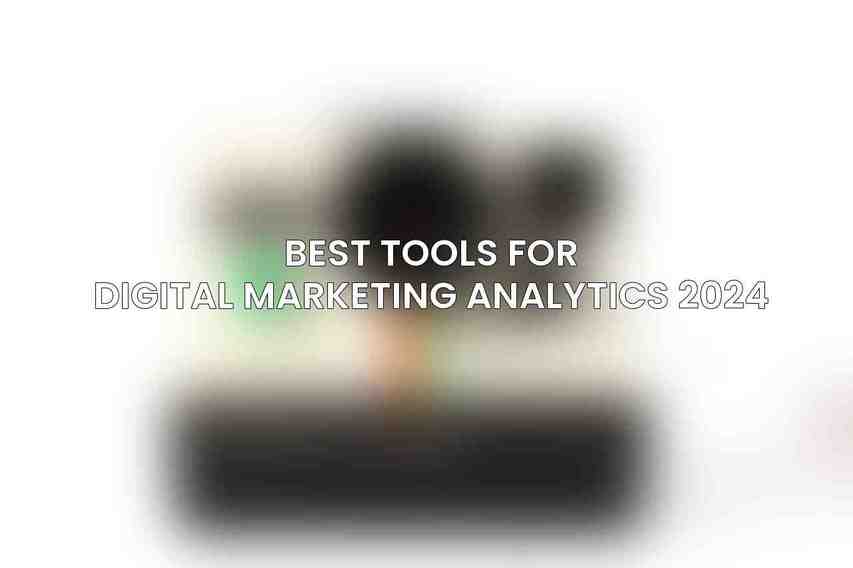Analytics plays a pivotal role in deciphering the success and effectiveness of marketing strategies. digital marketing analytics involves the collection, analysis, and interpretation of data from various digital platforms to optimize marketing campaigns, enhance customer engagement, and drive business growth. The data-driven insights provided by analytics tools are indispensable for marketing professionals in making informed decisions and maximizing their return on investment.
One of the key aspects that make data-driven marketing indispensable is its ability to provide a robust foundation for marketing strategies. By leveraging data analytics, marketers can gain valuable insights into consumer behavior, preferences, and trends, allowing them to tailor their campaigns for maximum impact. Moreover, data-driven marketing enables marketers to measure the performance of their initiatives accurately, identify areas for improvement, and optimize their campaigns in real-time.
The digital marketing analytics tools world is vast and varied, offering a plethora of options for marketers to choose from. These tools are designed to track and analyze various metrics such as website traffic, user engagement, conversion rates, and ROI, providing marketers with actionable insights to enhance their marketing efforts.
Top Digital Marketing Analytics Tools
A. Google Analytics 4
Google Analytics 4 is a leading analytics tool that offers a wide array of features tailored to meet the needs of modern marketers. Some of its key features include:
| Features | Benefits | Ideal for |
|---|---|---|
| Real-time tracking | Comprehensive insights | Websites of all sizes |
| Advanced segmentation | Customizable reporting | Businesses seeking detailed user behavior insights |
| Cross-device tracking | Free to use | Marketers in need of advanced analytics capabilities |
B. Adobe Analytics
Adobe Analytics is a robust analytics platform favored by enterprise-level businesses for its advanced features:
| Features | Benefits | Ideal for |
|---|---|---|
| Omnichannel tracking | Robust data collection | Enterprise-level businesses |
| Attribution modeling | Customization options | Marketers with complex campaign analytics needs |
| Multivariate testing | Excellent customer support | Organizations with large-scale marketing initiatives |
C. Hotjar
Hotjar stands out for its user-centric features that provide insightful data on user behavior: Read more about this on SEO Analytics: Tracking and Improving Your Online Visibility
| Features | Benefits | Ideal for |
|---|---|---|
| Heatmaps and recordings | Visual representation of behavior | Website optimization |
| Feedback polls and surveys | User feedback for conversion rates | Small businesses looking for affordability |
| Form analytics | Identifying usability issues | Gathering qualitative user experience data |
D. Semrush
Semrush is a comprehensive tool that caters to SEO and content marketing professionals:
| Features | Benefits | Ideal for |
|---|---|---|
| Organic and paid search analytics | Comprehensive competitive intelligence | SEO and SEM professionals |
| Content marketing insights | Content optimization suggestions | Content marketers |
| Social media tracking | Comprehensive keyword data | Agencies offering digital marketing services |
E. Mixpanel
Mixpanel focuses on user engagement and retention, making it ideal for businesses prioritizing customer experience:
| Features | Benefits | Ideal for |
|---|---|---|
| Customer journey mapping | Focus on user engagement | Product managers |
| User engagement analysis | Customizable dashboards | Growth marketers |
| Funnel optimization | Integration with CRM platforms | CX-focused businesses |
Choosing the Right Analytics Tool
When selecting an analytics tool, several factors should be considered to ensure it aligns with the business requirements:
- Business needs: Choose a tool that addresses specific marketing objectives.
- Data collection requirements: Ensure the tool can capture the necessary data points.
- Analytics capabilities: Opt for a tool that offers the insights and features needed.
- Budget and pricing: Consider the affordability and scalability of the tool.
- Customer support: Select a tool with reliable customer service for assistance when needed.
Implementing and Using Analytics Tools

Successful implementation of analytics tools involves setting up the tracking code, collecting relevant data, and analyzing and interpreting the insights gained. By following proper procedures in setting up the analytics code, businesses can ensure accurate data collection. Data analysis enables marketers to derive actionable insights and make informed decisions to drive their marketing strategies forward.
Emerging Trends in Digital Marketing Analytics

As technology continues to evolve, several trends are shaping the future of digital marketing analytics: Read more on How Analytics Transform Social Media Marketing Strategies
- Artificial Intelligence and Machine Learning: AI-powered analytics tools are becoming increasingly prevalent to automate data analysis and provide predictive insights.
- Predictive Modeling: Leveraging data to forecast future trends and outcomes is gaining traction in digital marketing.
- Omnichannel Analytics: Marketers are focusing on holistic analytics across multiple channels to understand the complete customer journey.
- Real-Time Data Visualization: Instant access to real-time data visualizations is becoming crucial for marketers to make quick, data-driven decisions.
By staying abreast of these trends and leveraging advanced analytics tools, marketers can harness the power of data to drive their marketing strategies to new heights in 2024.
Frequently Asked Questions
What is digital marketing analytics?
Digital marketing analytics is the process of collecting, measuring, analyzing, and interpreting marketing data in order to determine the effectiveness of marketing campaigns and strategies. You can find more information on Boost Your Online Performance: Conversion Rate Optimization and Analytics
What are the top tools for digital marketing analytics in 2024?
Some of the top tools for digital marketing analytics in 2024 include Google Analytics, Adobe Analytics, HubSpot Analytics, SEMrush, and Mixpanel.
How can digital marketing analytics help businesses?
Digital marketing analytics can help businesses by providing valuable insights into the performance of their marketing efforts, allowing them to optimize campaigns, target the right audience, and ultimately drive better results.
What are the key features to look for in digital marketing analytics tools?
Key features to look for in digital marketing analytics tools include real-time data tracking, customizable reporting, advanced segmentation capabilities, integration with other platforms, and predictive analytics.
Is it important for businesses to invest in digital marketing analytics tools?
Yes, it is essential for businesses to invest in digital marketing analytics tools as they provide valuable data-driven insights that can help improve marketing ROI and overall business performance.

